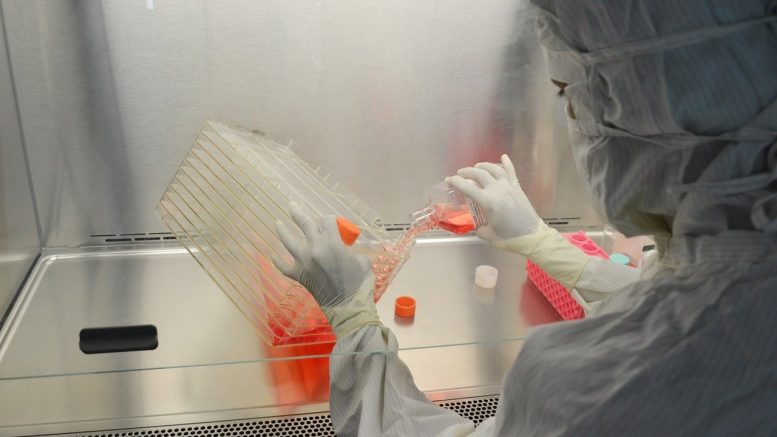On the February 9, the U.S. Food and Drug Administration issued an emergency use authorization (EUA) for bamlanivimab and etesevimab (monoclonal antibodies) administered together for the treatment of mild to moderate COVID-19 in adults and pediatric patients (12 years of age or older weighing at least 40 kilograms [about 88 pounds]) who test positive for SARS-CoV-2 and who are at high risk for progressing to severe COVID-19. This authorization use also includes treatment for those who are 65 years of age or older or who have certain chronic medical conditions.
At this moment, the situation with coronavirus infection in the United States is still on the peak. According to the data from World Health Organization (WHO) from January 3 to 9 February 2021, there have been 26 746 377 confirmed cases of COVID-19 with 459 993 deaths.
“In a clinical trial of patients with COVID-19 at high risk for disease progression, a single intravenous infusion of bamlanivimab and etesevimab administered together significantly reduced COVID-19-related hospitalization and death during 29 days of follow-up compared to placebo. The safety and effectiveness of this investigational therapy for use in the treatment of COVID-19 continue to be evaluated,” – the FDA report.
Bamlanivimab And Etesevimab
Bamlanivimab and etesevimab are not authorized for patients who are hospitalized due to COVID-19 or require oxygen therapy due to COVID-19. Treatment with bamlanivimab and etesevimab has not been studied in patients hospitalized due to COVID-19. Monoclonal antibodies, such as bamlanivimab and etesevimab, may be associated with worse clinical outcomes when administered to hospitalized patients with COVID-19 requiring high flow oxygen or mechanical ventilation.
“Today’s action, which provides another treatment for COVID-19, reflects the FDA’s strong commitment to working with sponsors to expand potential treatment options health care providers can use to fight this pandemic,” said Patrizia Cavazzoni, M.D., acting director of the FDA’s Center for Drug Evaluation and Research. “The data supporting this emergency authorization add to emerging evidence that points to the clinical utility of neutralizing antibodies for the treatment of COVID-19 in certain patients. As part of our Coronavirus Treatment Acceleration Program, the FDA uses every resource at our disposal to make treatments such as these monoclonal antibodies available while continuing to study their safety and effectiveness.”
Monoclonal Antibodies Treatment Clinical Trial
The data supporting this EUA for bamlanivimab and etesevimab are based on a randomized, double-blind, placebo-controlled clinical trial in 1,035 non-hospitalized adults with mild to moderate COVID-19 symptoms who were at high risk for progressing to severe COVID-19. Of these patients, 518 received a single infusion of bamlanivimab 2,800 milligrams and etesevimab 2,800 milligrams together, and 517 received placebo.
The primary endpoint was COVID-19 related hospitalizations or death by any cause during 29 days of follow-up. Hospitalization or death occurred in 36 (7%) patients who received placebo compared to 11 (2%) patients treated with bamlanivimab 2,800 milligrams and etesevimab 2,800 milligrams administered together, a 70% reduction. All 10 deaths (2%) deaths occurred in the placebo group. Thus, all-cause death was significantly lower in the bamlanivimab 2,800-milligram and etesevimab 2,800-milligram group than the placebo group.
“The authorized dosage of 700 milligrams bamlanivimab and 1400 milligrams etesevimab administered together is based on analyses of available preclinical, clinical, and virologic data, as well as pharmacokinetic and pharmacodynamic modeling, which, in totality, support that the authorized dosage is expected to have a similar clinical and virologic effect to 2,800 milligrams bamlanivimab and 2,800 milligrams etesevimab administered together,” – said in the article.
While bamlanivimab and etesevimab administered together resulted in a lower risk of resistant viruses developing during treatment compared with bamlanivimab administered alone, both treatments are expected to benefit patients at high risk of disease progression. At present, both 700 milligrams bamlanivimab alone as well as 700 milligrams bamlanivimab and 1,400 milligrams etesevimab administered together will be available under an EUA.





Be the first to comment on "Monoclonal Antibodies For Treatment of COVID-19"